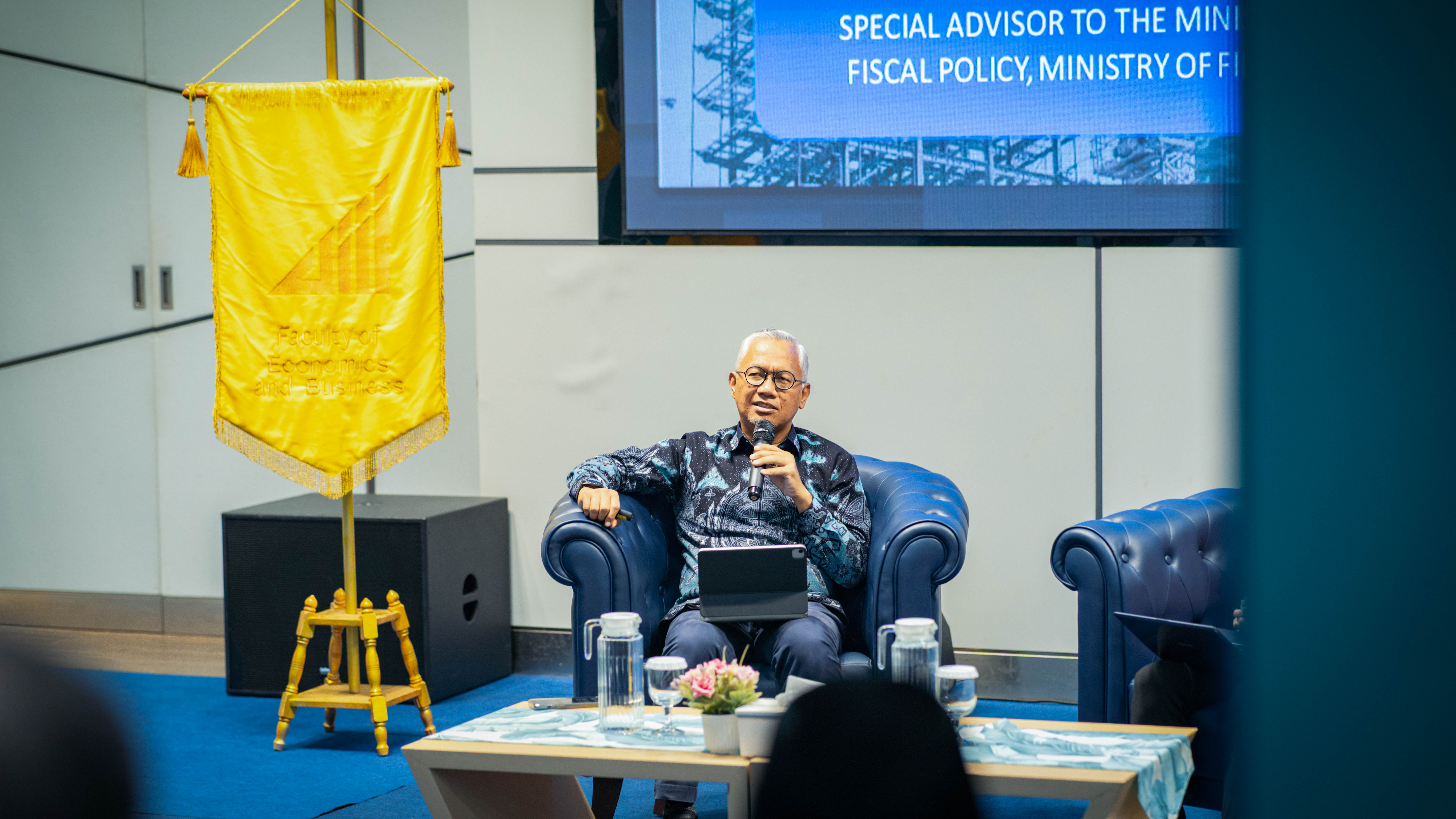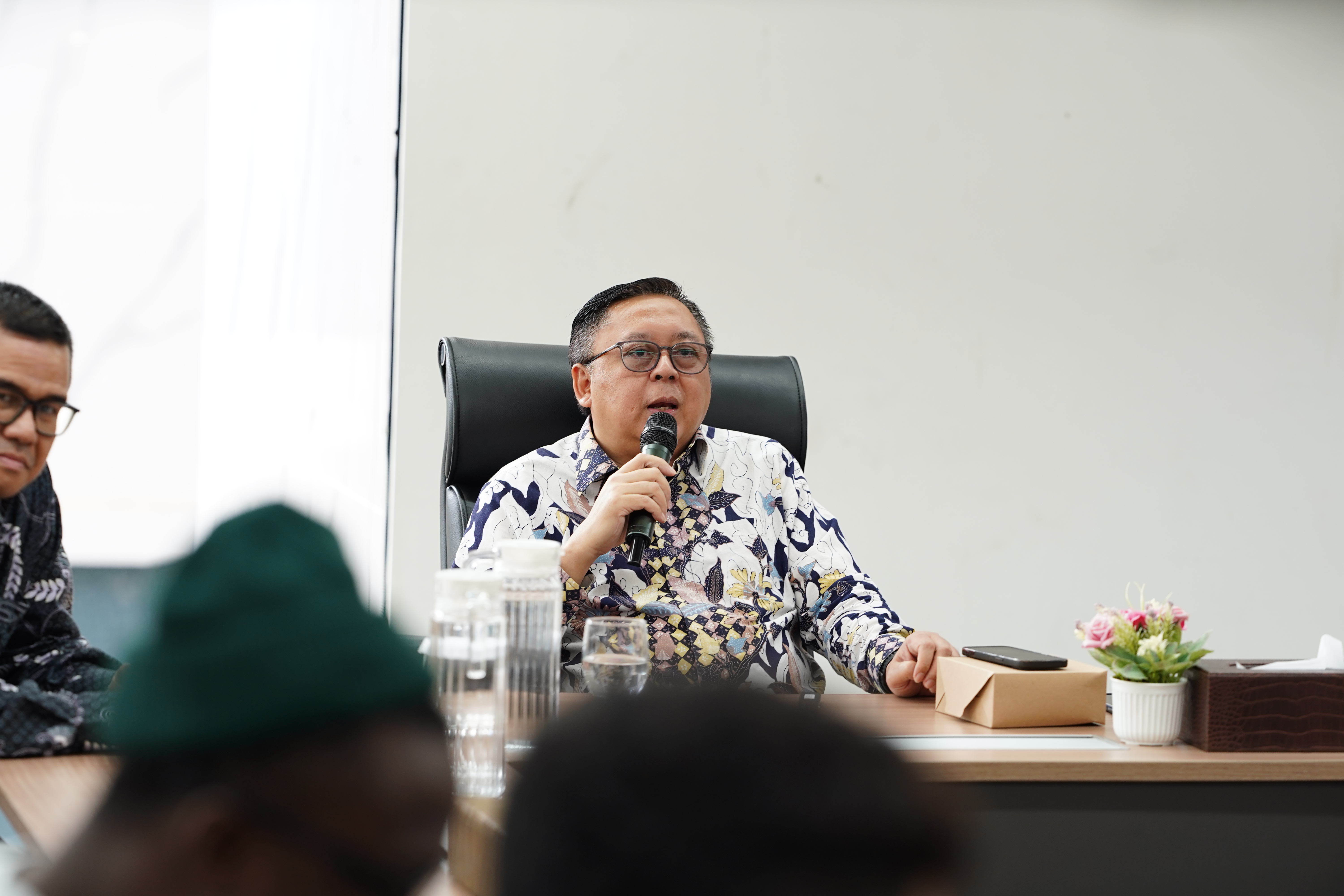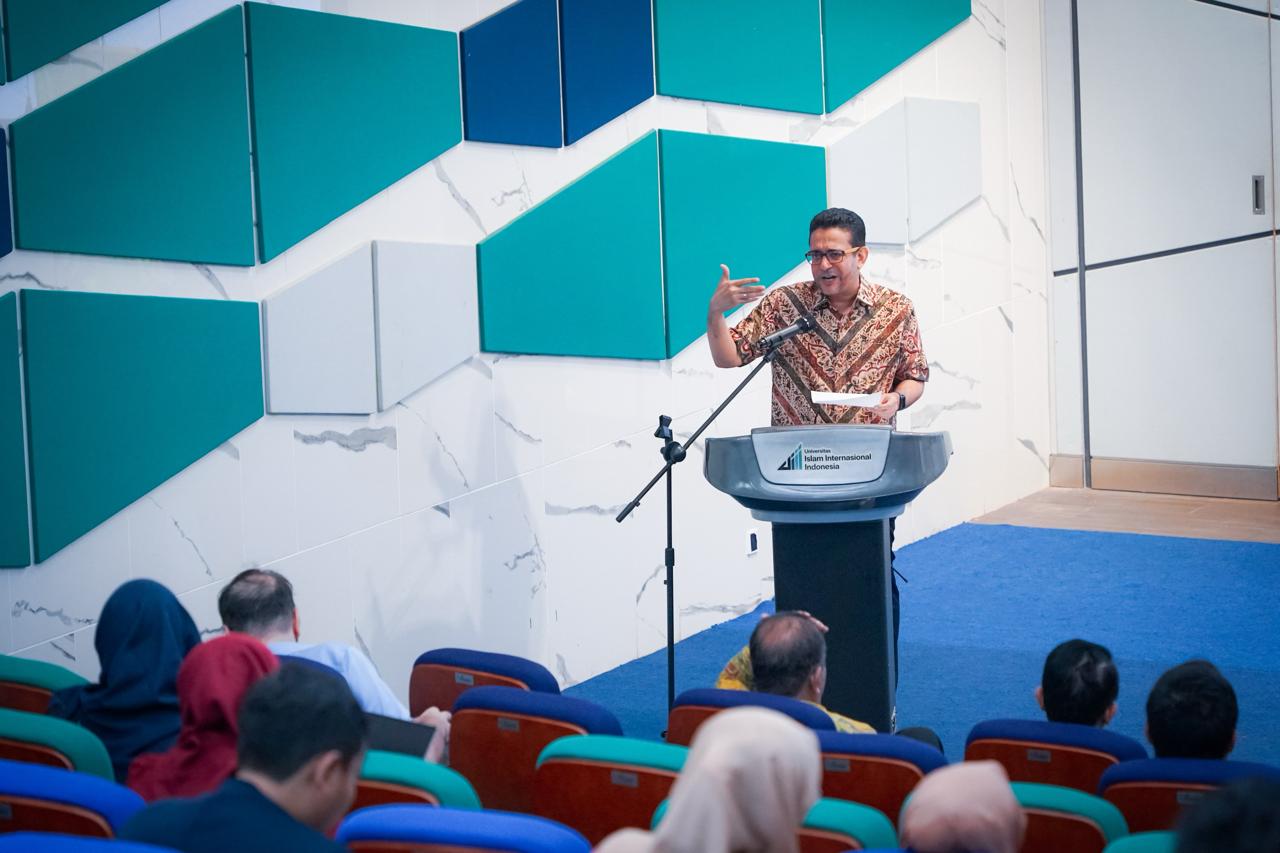Indonesian Economy in Transformation Vortex: Prof. Candra F. Ananda’s Lecture at UIII
May 22, 2024Contributor: Supriyono

UIII, DEPOK – Professor Candra Fajri Ananda, Special Advisor to the Minister for Regional Fiscal Policy at the Indonesian Ministry of Finance, delivered a public lecture on May 20, 2024, at the Faculty A Theater Room at Universitas Islam Internasional Indonesia (UIII) in Depok, West Java. The lecture was part of the EconInsight series organized by UIII’s Faculty of Economics and Business.
Prof. Ananda began his lecture by outlining the four major challenges shaping the current global economy, namely geopolitical tensions, climate change, digitalization, and the pandemic. He explained that the Indonesian economy's journey through a transformation vortex is influenced by these four factors.
Geopolitical tensions are the main source of uncertainty and are likely to persist and increase in the medium to long term. Furthermore, climate change poses significant threats to health, safety, and welfare. The digital technology, while an important enabler, also brings potential disruptive risks with advancements in artificial intelligence, the chip war, misinformation, and the future of work. Additionally, the pandemic has also caused a deep, multidimensional crisis.
Despite these global economic challenges, Prof. Ananda said that Indonesia's economic growth projections remain positive, with inflation rates generally below policy rates. Citing the data from the WEO IMF in April 2024, Prof. Ananda said that Indonesia, along with several other Southeast Asian countries, is expected to continue experiencing strong economic growth.
Specific to Indonesia, the expected growth is supported by several drivers including the guaranteed short-term economic prospects, the high public optimism, the consumption which continues to grow, the positive development of the real sales index, the expansive purchasing Managers Index (PMI), the growing electricity consumption, as well as contraction cement consumption during Ramadan.
Additionally, Indonesia’s economy in Quarter one of 2024 is expected to grow strongly given the state spending and election-related activities, as well as increases in civil-servant salaries and allowance, contributing to the economic growth optimism.
In the lecture, Prof. Ananda also explained about the importance of fiscal policy in supporting economic transformation, with a focus on fiscal decentralization to empower regional governments. In this regard, the law on fiscal relations between the central government and regions (HKPD Law) is central to this strategy, aiming to ensure efficient and equitable resource allocation across the nation.
Prof. Ananda also highlighted that the financial sector is identified as a critical enabler of economic growth, thereby calling for deepening the financial market, enhancing financial literacy, and improving access to financing to support Indonesia's development goals.
The insight from Professor Candra Fajri Ananda helped shed light on the current update on Indonesia's economy and future projections. By addressing the challenges of geopolitical tensions, climate change, digitalization, and pandemics, Indonesia is poised to achieve its long-term development objectives, especially through a balanced approach to economic growth, social welfare, and environmental sustainability, guided by strategic fiscal policy and a robust financial sector.
- Grit, Innovation, and Adaptation: Key Themes in FoE’s 3rd Graduate Forum for Education Future
- Student-Led Research Community Series Kick Off with Academic Publishing Session
- Advancing Institutional Governance through Risk Management Training
- A Night of Unity: International Iftar Brings Students Together in Celebration
- Vice Minister Joins Iftar with UIII International Students, Hearing Their Stories
- FisFastFest Showcases ‘TransformMe’ Spirit with Intense Quiz Competition
- Ramadan Unites Us: UIII Hosts Iftar Gathering to Strengthen Bonds
- It’s Time for Africa! UIII Aims to Expand Outreach in African Continent
- Future Innovators Gather at UIII for 1000x Challenge Mentoring & Briefing
- UIII and Al-Azhar Strengthen Ties for the Advancement of Islamic Civilization


